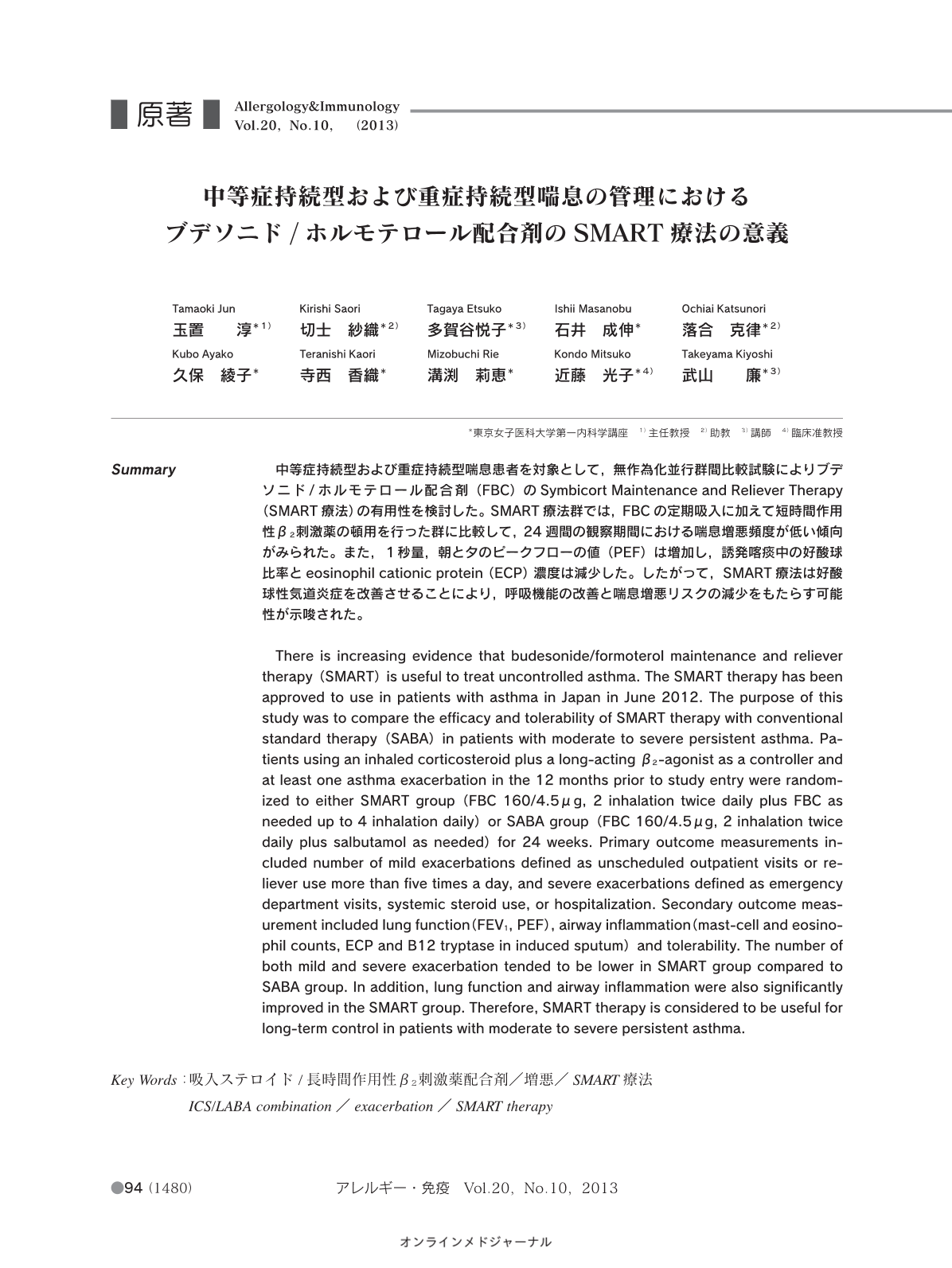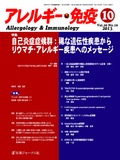- 有料閲覧
- 文献概要
- 1ページ目
- 参考文献
- サイト内被引用
中等症持続型および重症持続型喘息患者を対象として,無作為化並行群間比較試験によりブデソニド/ホルモテロール配合剤(FBC)のSymbicort Maintenance and Reliever Therapy(SMART療法)の有用性を検討した。SMART療法群では,FBCの定期吸入に加えて短時間作用性β2刺激薬の頓用を行った群に比較して,24週間の観察期間における喘息増悪頻度が低い傾向がみられた。また,1秒量,朝と夕のピークフローの値(PEF)は増加し,誘発喀痰中の好酸球比率とeosinophil cationic protein(ECP)濃度は減少した。したがって,SMART療法は好酸球性気道炎症を改善させることにより,呼吸機能の改善と喘息増悪リスクの減少をもたらす可能性が示唆された。
There is increasing evidence that budesonide/formoterol maintenance and reliever therapy(SMART)is useful to treat uncontrolled asthma. The SMART therapy has been approved to use in patients with asthma in Japan in June 2012. The purpose of this study was to compare the efficacy and tolerability of SMART therapy with conventional standard therapy(SABA)in patients with moderate to severe persistent asthma. Patients using an inhaled corticosteroid plus a long-acting β2-agonist as a controller and at least one asthma exacerbation in the 12 months prior to study entry were randomized to either SMART group(FBC 160/4.5μg, 2 inhalation twice daily plus FBC as needed up to 4 inhalation daily)or SABA group(FBC 160/4.5μg, 2 inhalation twice daily plus salbutamol as needed)for 24 weeks. Primary outcome measurements included number of mild exacerbations defined as unscheduled outpatient visits or reliever use more than five times a day, and severe exacerbations defined as emergency department visits, systemic steroid use, or hospitalization. Secondary outcome measurement included lung function(FEV1, PEF), airway inflammation(mast-cell and eosinophil counts, ECP and B12 tryptase in induced sputum)and tolerability. The number of both mild and severe exacerbation tended to be lower in SMART group compared to SABA group. In addition, lung function and airway inflammation were also significantly improved in the SMART group. Therefore, SMART therapy is considered to be useful for long-term control in patients with moderate to severe persistent asthma.



